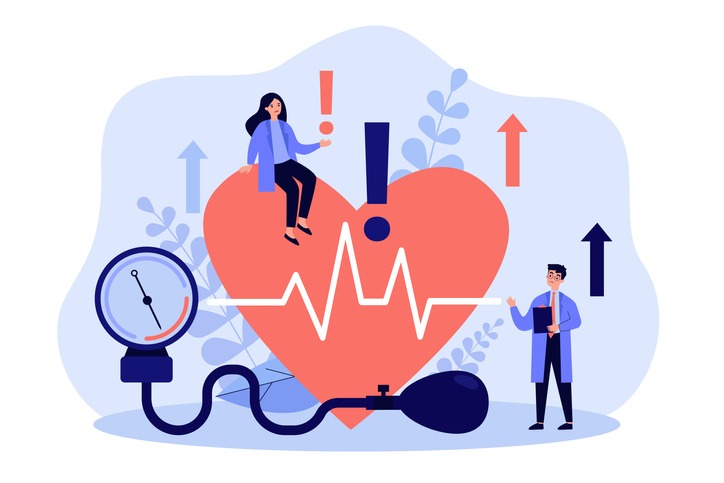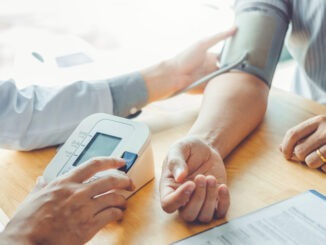
With around 1 in 3 adults in the UK suffering from high blood pressure, it’s vital those in primary care understand the lifestyle changes needed to manage it
CREDIT: This is an edited version of an article that originally appeared on Medscape
Opting for a health-conscious way of life has the potential to stave off or postpone the onset of hypertension, diminish the likelihood of future cardiovascular issues, and might even defer or obviate the necessity for medicinal intervention in cases of grade 1 hypertension.
Consequently, prioritising lifestyle modifications is regarded as the primary approach to addressing hypertension. These interventions should be thoroughly deliberated and integrated into all interactions with patients.
Lifestyle changes and recommendations
Alcohol consumption
- Current UK guidance advises limiting alcohol intake to 14 units per week for women and men
Caffeine consumption
- Drinking >4 cups of coffee per day may increase blood pressure
DASH – Dietary approaches to stop hypertension
- An evidence-based eating plan (see the Useful Resources for Patients section) rich in fruits, vegetables, and low-fat dairy products, with reduced salt and saturated/trans fat content
Maintaining a healthy weight
- Weight loss of 3–9% in individuals living with overweight or obesity
Physical activity
Adults should aim to:
- Engage in strengthening activities that work all the major muscle groups (legs, hips, back, abdomen, chest, shoulders, and arms) on at least 2 days per week
- Engage in at least 150 minutes of moderate-intensity activity per week or 75 minutes of vigorous-intensity activity per week
- Spread exercise evenly over 4–5 days per week, or every day
- Reduce time spent sitting or lying down, and breakup long periods of inactivity
Potassium intake
- Increase dietary potassium intake (e.g. tomato juice, bananas, potatoes, spinach, salmon, eggs; see the Useful Resources for Patients section) to 3.5–5.0 g daily
- Be aware of individuals at higher risk of hyperkalaemia, where this recommendation should be individualised: those with advanced CKD, CHF, DM, and resistant hypertension
Salt intake
- Adults should eat <6 g of salt, equivalent to 2.4 g sodium per day – 1 tsp≈5 g salt
- Salt substitutes such as LoSalt contain potassium instead of sodium, so may not be suitable for all. See the above recommendation regarding potassium intake
- Soluble and effervescent preparations of analgesics have high sodium content; 8 soluble paracetamol tablets exceeds the recommended sodium intake of 6g daily
- Soluble preparations should be avoided unless the person has genuine swallowing difficulties
The effects of implementing these modifications are of course individual, and combinations of 2 (or more) lifestyle modifications are synergistic.
For comparison, the average SBP reduction from one antihypertensive drug is 12.5–15.5 mmHg and around two-thirds of hypertensive individuals cannot be controlled on 1 drug and will require 2 or more antihypertensive agents from different drug classes.
Blood Pressure UK and the British and Irish Hypertension Society (BIHS) provide information for supporting those with—and healthcare professionals managing patients with—hypertension, including home BP monitoring resources from the BIHS.



Be the first to comment